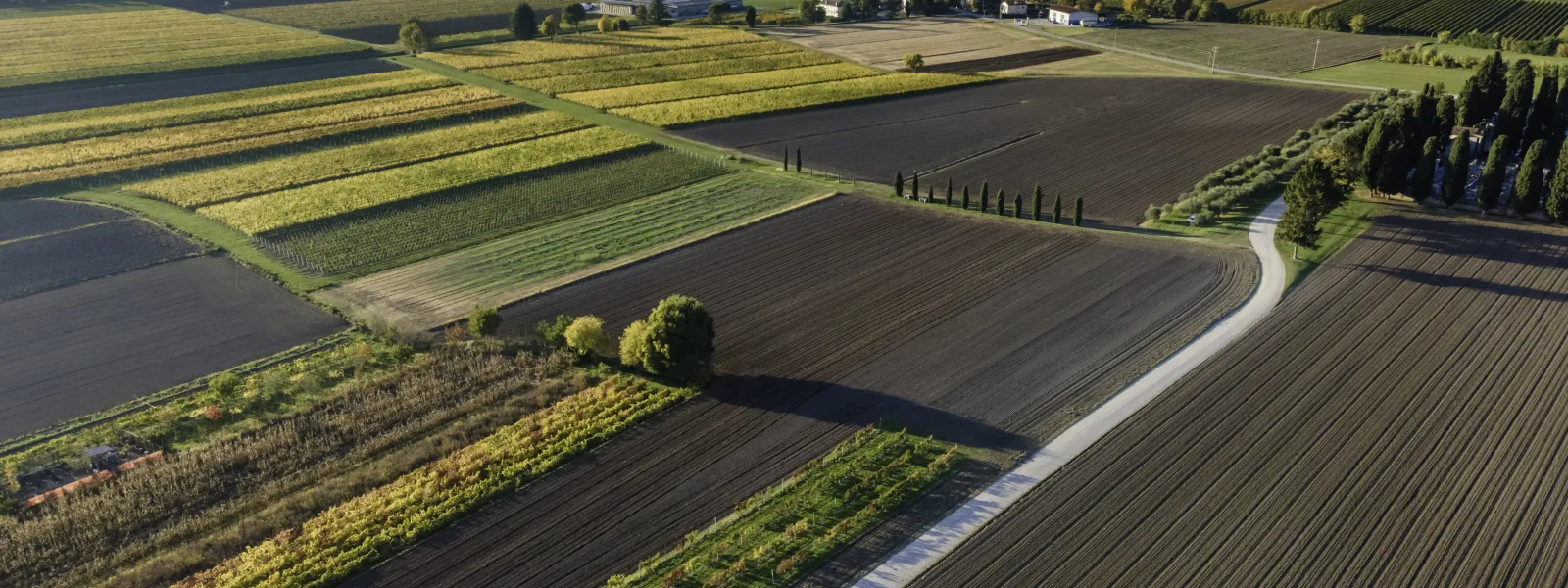Regional adaptation strategies for low carbon agriculture
NAT-VII/027
Regional adaptation strategies for low carbon agriculture
• considers that the scope of the European certification scheme for agriculture should cover and promote the reduction of all greenhouse gas emissions on farms in order to foster systemic change in production systems and practices;
• proposes adopting an approach which is based on practices recognised as being able to boost and maintain soil carbon content while helping to safeguard biodiversity, rather than a solely results-based one;
• notes that the common agricultural policy (CAP) is and must remain the main tool for supporting European agricultural production and steering it towards ever more resilient and sustainable systems and calls for financing linked to the carbon certification scheme to operate alongside CAP financing;
• considers that the establishment of voluntary compensation markets could entail a significant danger of financialisation of farming and agricultural land grabbing in the medium and long term, and that the Commission should take these dangers into account immediately;
• notes that local and regional authorities can play the twofold role of getting the ball rolling in low carbon agriculture projects and then grouping them together at regional level by nurturing cooperation between stakeholders;
• calls on the Commission to include local and regional authorities in the governance of the European carbon certification scheme as they can ensure that projects based on supply chain cooperation and tailored to a region's needs and features and regional strategies for reducing agricultural greenhouse gas emissions can get off the ground;
• regrets that the European Commission's proposal has not established rules on how economic actors can use these carbon removals certificates, thus opening the door to undesirable methods of offsetting emissions;
• regrets that the European Commission's proposal does not provide details on certain key issues such as the governance of certification systems; is disappointed that the European Commission has chosen to deal with them by means of secondary legislation.
• proposes adopting an approach which is based on practices recognised as being able to boost and maintain soil carbon content while helping to safeguard biodiversity, rather than a solely results-based one;
• notes that the common agricultural policy (CAP) is and must remain the main tool for supporting European agricultural production and steering it towards ever more resilient and sustainable systems and calls for financing linked to the carbon certification scheme to operate alongside CAP financing;
• considers that the establishment of voluntary compensation markets could entail a significant danger of financialisation of farming and agricultural land grabbing in the medium and long term, and that the Commission should take these dangers into account immediately;
• notes that local and regional authorities can play the twofold role of getting the ball rolling in low carbon agriculture projects and then grouping them together at regional level by nurturing cooperation between stakeholders;
• calls on the Commission to include local and regional authorities in the governance of the European carbon certification scheme as they can ensure that projects based on supply chain cooperation and tailored to a region's needs and features and regional strategies for reducing agricultural greenhouse gas emissions can get off the ground;
• regrets that the European Commission's proposal has not established rules on how economic actors can use these carbon removals certificates, thus opening the door to undesirable methods of offsetting emissions;
• regrets that the European Commission's proposal does not provide details on certain key issues such as the governance of certification systems; is disappointed that the European Commission has chosen to deal with them by means of secondary legislation.
THE EUROPEAN COMMITTEE OF THE REGIONS
• considers that the scope of the European certification scheme for agriculture should cover and promote the reduction of all greenhouse gas emissions on farms in order to foster systemic change in production systems and practices;
• proposes adopting an approach which is based on practices recognised as being able to boost and maintain soil carbon content while helping to safeguard biodiversity, rather than a solely results-based one;
• notes that the common agricultural policy (CAP) is and must remain the main tool for supporting European agricultural production and steering it towards ever more resilient and sustainable systems and calls for financing linked to the carbon certification scheme to operate alongside CAP financing;
• considers that the establishment of voluntary compensation markets could entail a significant danger of financialisation of farming and agricultural land grabbing in the medium and long term, and that the Commission should take these dangers into account immediately;
• notes that local and regional authorities can play the twofold role of getting the ball rolling in low carbon agriculture projects and then grouping them together at regional level by nurturing cooperation between stakeholders;
• calls on the Commission to include local and regional authorities in the governance of the European carbon certification scheme as they can ensure that projects based on supply chain cooperation and tailored to a region's needs and features and regional strategies for reducing agricultural greenhouse gas emissions can get off the ground;
• regrets that the European Commission's proposal has not established rules on how economic actors can use these carbon removals certificates, thus opening the door to undesirable methods of offsetting emissions;
• regrets that the European Commission's proposal does not provide details on certain key issues such as the governance of certification systems; is disappointed that the European Commission has chosen to deal with them by means of secondary legislation.
• considers that the scope of the European certification scheme for agriculture should cover and promote the reduction of all greenhouse gas emissions on farms in order to foster systemic change in production systems and practices;
• proposes adopting an approach which is based on practices recognised as being able to boost and maintain soil carbon content while helping to safeguard biodiversity, rather than a solely results-based one;
• notes that the common agricultural policy (CAP) is and must remain the main tool for supporting European agricultural production and steering it towards ever more resilient and sustainable systems and calls for financing linked to the carbon certification scheme to operate alongside CAP financing;
• considers that the establishment of voluntary compensation markets could entail a significant danger of financialisation of farming and agricultural land grabbing in the medium and long term, and that the Commission should take these dangers into account immediately;
• notes that local and regional authorities can play the twofold role of getting the ball rolling in low carbon agriculture projects and then grouping them together at regional level by nurturing cooperation between stakeholders;
• calls on the Commission to include local and regional authorities in the governance of the European carbon certification scheme as they can ensure that projects based on supply chain cooperation and tailored to a region's needs and features and regional strategies for reducing agricultural greenhouse gas emissions can get off the ground;
• regrets that the European Commission's proposal has not established rules on how economic actors can use these carbon removals certificates, thus opening the door to undesirable methods of offsetting emissions;
• regrets that the European Commission's proposal does not provide details on certain key issues such as the governance of certification systems; is disappointed that the European Commission has chosen to deal with them by means of secondary legislation.

